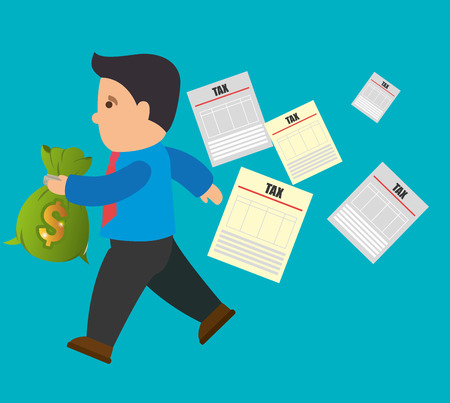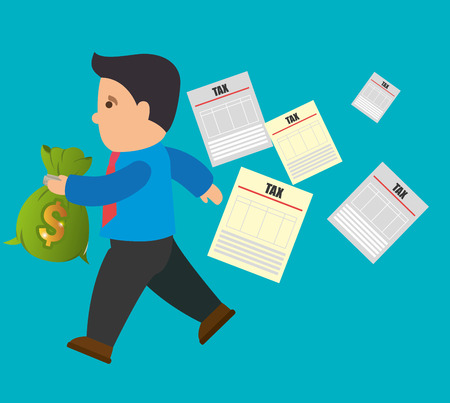How to grow your business: The importance of an online presence
 This is the second in a series of blog posts that will guide you in growing your business, whether through practical advice or with ideas on how you can change the way you work. Each week we will cover a new topic relating to business growth, to help you make the most of your business.
This is the second in a series of blog posts that will guide you in growing your business, whether through practical advice or with ideas on how you can change the way you work. Each week we will cover a new topic relating to business growth, to help you make the most of your business.
Why is an online presence important?
Regardless of your business – B2B, eCommerce, specialist services or a deli selling cakes and coffee from 6 am to noon – having an online presence is important. Your website is your digital shop window, it is here that your prospects come to verify who you are and your audience gets to know you after clicking on the link from your social media post. It is also here that the decision to work with you or to purchase your product takes place, which is why your website must be functional, appealing and user-friendly.
On the other side of the coin, an online presence is what your audience, prospects and clients expect from you. Many of your current and potential customers are part of a generation of people who have grown up in a world where the internet is part of daily life. Millennials and Generation Z perform up to 61% of their transactions online, and thus a solid online presence is key to interacting with this demographic.
Having a successful online presence requires a solid digital marketing plan, one that can help you to identify your audience, attract them, and provide them with the right user experience when they come to your site. The best way to start is to carry out an audit of your business environment, including finding out what kind of online visibility your competitors are enjoying, what is keeping your audience from converting into paying customers, and what can you do to achieve greater visibility cost effectively.
Keeping up with the times
Nowadays internet access is primarily done through smartphones or tablets, meaning more transactions are performed on these devices every year. Being mobile-friendly is key. If your website is difficult to read or navigate on a smaller device like a smartphone, it can drive away a large portion of your customers. Check your site accessibility on phones and tablets, and consider the possibility of having a dedicated mobile site or even an app.
It’s also worth staying on top of social media trends and checking what’s popular. Look at what content performs well and what platforms are used by your competitors. For example, the creative industries often utilise Instagram, while media and communications prefer Twitter. Don’t just blindly put up post after post though, make sure that you are actually reaching a relevant audience and that they are engaging with your content. You want the ‘views’ and ‘likes’ on your site to turn into actual business at the end of the day.
How to manage your online presence
With technology advancing so fast, it is becoming a real challenge to manage a strong online presence for small business owners. A wise option is to seek help from a professional digital marketer. Get them to use a wide range of tools to help you to identify the digital channels that are best suitable for your business and take the most cost-effective approach.
When it comes to SEO, time and effort are key. Keep your content fresh, professional and insightful. Also, be aware that the chances of getting to the top position overnight are almost impossible particularly if you are after a popular keyword, consider running a paid search campaign instead.
Social Media are the buzzwords. Facebook, Twitter, Instagram, LinkedIn, YouTube are the popular choices. Treat them like a business function by setting the objectives and measuring the progress. If you aim is to drive awareness, but nobody is reading your post, it’s time to consider changing tactics. Again, it may be worth getting a professional digital marketer to help manage your social media and grow your audience.
Business growth advice from TaxAgility
At TaxAgility, we have watched many of our clients go from strength to strength and grow their business every year. As specialist small business accountants, we are there from the start to help our clients improve and create new opportunities. Talk to TaxAgility today to find out how we can help you grow – either call us on 020 8108 0090 or use our Online Enquiry Form.
Is crowdfunding safe?
 In recent years, it has become more and more common for startups and small businesses to be crowdfunded – that is, they are funded by a large number of ‘backers’ who donate small amounts of money on websites like Crowdcube and Kickstarter. Crowdfunding usually offers backers one of two things: rewards or equity. The rewards model offers products or other rewards to their investors depending on the amount invested, while the equity model gives out shares of the company. Some investors are simply fans of the company or the product, while others are hoping to make a good profit.
In recent years, it has become more and more common for startups and small businesses to be crowdfunded – that is, they are funded by a large number of ‘backers’ who donate small amounts of money on websites like Crowdcube and Kickstarter. Crowdfunding usually offers backers one of two things: rewards or equity. The rewards model offers products or other rewards to their investors depending on the amount invested, while the equity model gives out shares of the company. Some investors are simply fans of the company or the product, while others are hoping to make a good profit.
Crowdfunding: the good and the bad
There are numerous benefits to crowdfunding. The most obvious one is that it’s very easy to set up a crowdfunding page on a large platform that attracts good attention from a worldwide audience. Crowdfunding also helps a business or product owner to gauge their product’s popularity at its infancy stage and identify their potential customers, many of whom remain fiercely loyal to the brand or business for a considerably long time since they’re involved with the growing business from the beginning.
So, what are the downsides to crowdfunding? Like any investment, it is never a guarantee for success – and failing to deliver can cause public backlash. Also, two-thirds of crowdfunding campaigns do not reach their goals, meaning the start-up dream ends before a product is realised. Struggle may also happen to well-funded projects. The British firm FFF Ltd raised £5 million on Crowdcube for Sugru, a type of reusable glue, but failed to mention the risks associated with bank loans they had also taken out. The product was not as successful as anticipated, and in May 2018, FFF disappointed investors when they sold Sugru for only £7.6 million to the German company Tesa – that’s £25.4 million less than what they had said it was worth on Crowdcube. As a result, investors face losing 90% of their investment – and just like the crowdfunding was very public, so is the failure.
Should your business rely on crowdfunding?
While crowdfunding seems like an easy way to raise money, it can also be unreliable in regard to how much you can raise, as you can’t predict how many investors will back you. The temptation to offer generous perks for larger investments should also be considered carefully, and if it takes a while to turn your concept into a realistic product, your backers may become impatient.
That being said, crowdfunding definitively has its benefits. Most crowdfunding sites only charge a fee if your project is successful, and the fee is usually fairly low, at around 5%. Large crowdfunding sites have millions of potential backers waiting to make their next investment. In other words, you are taking a fairly small financial risk but also reaching a big audience. The most important thing is to do your research first, check the terms and conditions of each crowdfunding platform available to you, and carefully consider what you can give your backers in return for their money.
Get funding advice from TaxAgility
As with all investors, the people who back your business on a crowdfunding platform are more likely to part with their money if they feel like it’s a sound investment. You should carefully consider what you can offer, and make sure that you have a plan in place for every scenario. With the help of specialist small business accountants TaxAgility, you can work out a solid business plan with a clear strategy.
As experienced London accountants for startups, we can help get your business off the ground, and you can avoid the common mistakes that many enthusiastic business owners make.
Before you take the leap and launch your idea on a crowdfunding platform, call your local London accountants on 020 8108 0090, use our Online Enquiry Form, or pop into one of our offices:
- Putney
- Wimbledon
- Hammersmith
- Fulham
- Richmond
- Central London (Cavendish Square)
Small Business: Tax Incentives
 If you were to ask a group of small business owners what tax incentives they can enjoy, you are likely to get different answers, as there are quite a few incentives out there and they can be quite confusing. Some may be relevant to you, others may not. To know more about what the UK government offers at present and what schemes are useful to you, it is best to speak with a professional accounting firm for Small Businesses in London like us. At TaxAgility, we can help to advise on tax incentives.
If you were to ask a group of small business owners what tax incentives they can enjoy, you are likely to get different answers, as there are quite a few incentives out there and they can be quite confusing. Some may be relevant to you, others may not. To know more about what the UK government offers at present and what schemes are useful to you, it is best to speak with a professional accounting firm for Small Businesses in London like us. At TaxAgility, we can help to advise on tax incentives.
Popular tax incentives that are relevant to small businesses
- Annual Investment Allowance (AIA) – this is for businesses investing in qualifying investment for up to £200,000.
Example: You’re a sole trader not registered for VAT. You just bought a used van for £2,000 to transport goods. Your profit for the year is £20,000 and this means you can claim AIA on the cost of the van, so your tax will be on £18,000 (which is £20,000 - £2,000).
If you’re VAT registered, you can claim AIA on the cost of the asset less any VAT you can reclaim on the asset.
- Employment Allowance – introduced in 2014, this allows you to get up to £3,000 a year from the Class 1 National Insurance you have paid.
If you’re using XERO and already claimed the £3,000 Employment Allowance in the previous tax year, then XERO will automatically apply the annual balance of £3,000 in the current tax year.
- Research & Development Tax Relief – designed to encourage SMEs to invest in R&D by reducing your taxable profit and thereby decreasing your corporate tax.
As a small business owner, you can deduct an extra 130% of your qualifying costs from your yearly profit – in addition to the normal 100% deduction – this makes a total of 230% deduction. Talk to us if you’d like to understand more about Research & Development Tax Reliefs, from what counts as R&D to the different types of relief.
- Energy Technology List (ETL) – is a list of energy-efficient items which SEMs can purchase and benefit from single-year capital allowances.
Apart from these, there is also a range of Business Rates Reliefs – from Small Business Rate Relief to Relief for Pubs (in England with a rateable value of less than £100,000). Talk to us to find out more.
How important are Tax Incentives for a small business?
Tax Incentives are important for small businesses because they are an effective way to reduce your corporate tax bill, in addition to other ways like paying yourself tax efficiently.
To understand more and see how you and your small business can be tax efficient with tax reliefs, contact us today on 020 8108 0090 to arrange a complimentary, no obligation meeting.
To learn how the tax incentives for your small business, call your local London accountants TaxAgility on 020 8108 0090, or pop into one of our offices:
- Putney
- Wimbledon
- Hammersmith
- Fulham
- Richmond
- Central London (Cavendish Square)
What is a good debt ratio?
 Debt ratio, also known as the debt-to-asset ratio, is one of the KPIs used to assess a company’s leverage, and indicate what percentage of the business is financed through debt. There are no hard and fast rules about what debt ratio is ‘good’, as it varies by the type of business you are looking at, but it’s a good measure of the financial stability of a business. A business with a poor debt ratio might struggle to attain finance as lenders could consider them a risk. It can also indicate that the business has problems with cash flow.
Debt ratio, also known as the debt-to-asset ratio, is one of the KPIs used to assess a company’s leverage, and indicate what percentage of the business is financed through debt. There are no hard and fast rules about what debt ratio is ‘good’, as it varies by the type of business you are looking at, but it’s a good measure of the financial stability of a business. A business with a poor debt ratio might struggle to attain finance as lenders could consider them a risk. It can also indicate that the business has problems with cash flow.
How is debt-to-asset ratio calculated?
Debt-to-asset ratio is calculated by dividing the total liabilities (debt) of a company by their total assets. For example, a business with liabilities of £3,000 and assets of £10,000 would have a debt ratio of 30%. If their liabilities were £4,000, it would be 40%. The higher the number you end up with, the higher the ratio – and therefore a higher degree of debt financing. Another ratio used to analyse a company’s leverage position is the debt-to-equity ratio, which compares total liabilities to shareholders’ equity. Again, a higher number means the business is using more leverage, which means they could have a higher risk of financial problems.
What is the ideal debt ratio?
Generally speaking, a ratio of 40% or less is better. Some companies are exceptions to this rule, such as utility companies or banks, but for small businesses and individuals, a low debt ratio is preferable. Do keep in mind that there are times you can use debt to your advantage and that you will often need to take on debt to make your business grow. After all, without investment, you are unlikely to make returns.
How can I improve my debt ratio?
There isn’t necessarily a quick or easy way to improve your debt ratio, but it’s a great goal to have. If you need to lower your debt ratio, consider the following:
- Don’t take out more loans – or consult someone before you do!
- Refinance or pay off debts. If you have many loans that are accruing interest, consider refinancing them if it will lower the interest. You could also consider trying to pay off your debts sooner.
- Get a small business accountant. If you are uncertain of how to improve your debt ratio, sit down with a local accountant who will see the potential in your business.
TaxAgility can help
Debt ratio is one of the many key performance indicators (KPIs) you can use to measure how your small business is progressing. Although a good debt ratio is important, it’s not the only KPI you should use. There are times when you can use debt to grow your business. Getting help from London Accountants TaxAgility to tackle your financial management will help you understand where you’re heading, and what KPIs are relevant to your specific business model. As London accountants looking after small businesses and startups, we know how important it is to have someone just down the road who can see you face-to-face.
To learn how you can hack your business finances, call your local London accountants TaxAgility on 020 8108 0090, or pop into one of our offices:
- Putney
- Wimbledon
- Hammersmith
- Fulham
- Richmond
- Central London (Cavendish Square)
Using Gross Profit Margin to help your business
 There are many elements to running a business, but the main one is to ensure that you are making more money than you spend. For businesses that have large, multiple outgoings, such as builders and mechanics, it can be an effort to keep track of the money spent to keep business going. However, you need to make sure your work is priced in relation to how much it costs you to run your business. By calculating your Gross Profit Margin , you can see how you need to price your jobs. Without knowing your Gross Margin, it is safe to say that your company will fall short.
There are many elements to running a business, but the main one is to ensure that you are making more money than you spend. For businesses that have large, multiple outgoings, such as builders and mechanics, it can be an effort to keep track of the money spent to keep business going. However, you need to make sure your work is priced in relation to how much it costs you to run your business. By calculating your Gross Profit Margin , you can see how you need to price your jobs. Without knowing your Gross Margin, it is safe to say that your company will fall short.
What is Gross Profit Margin?
Gross Profit Margin is measured by the Revenue minus COGS (Costs Of Goods Sold), then divided by the Revenue itself. This is calculated to see how well the company is performing financially after the revenue and the Cost Of Goods Sold is deducted. Most companies would want to calculate this to see how much they have left after their sales. What you need to keep in mind is that the gross profit margin does not equal the margin for the whole business; it only equals the percentage of the sales revenue, and therefore indicates how well the company is using its resources. Generally speaking, the higher the percentage, the better the company is performing.
The metric would look like this:
Gross Profit Margin (calculated in %) = (Revenue – COGS) ÷ Revenue
What is Gross Profit and Net profit?
Gross Profit is the profit that is made after excluding the costs of the goods that has been sold. To not cause any confusion, Gross Profit should be calculated before calculating the Gross Profit Margin so that you will be able to know the Gross Profit (also known as Gross income) before calculating its margin. The formula for this would be:
Gross Profit = Revenue – Cost of Goods Sold.
Net Profit is the amount a company would have left after the taxes and operating expenses such as rent, payroll, or insurance have been deducted from the company’s revenue. On your income statement, the amount that your company has made after the Cost of Goods, operating expenses and taxes have been deducted is the Net Profit.
From receiving regular income statements, you should be able to calculate your average revenue, gross profit, and net profit as well as your operating expenses.
How is Gross Profit Margin useful?
Small companies and startups should be looking at a gross margin of at least 30% when pricing jobs. This means that if your company made £30,000 in sales revenue and the cost of goods sold were £5,000, the Gross Profit Margin would be 83% and the mark-up would be 500%. By keeping an eye on your gross profit margin, you can ensure you are charging the correct amount for your jobs, and not losing money.
How TaxAgility can help
The team at TaxAgility can help small business owners and aspiring business owners with their finances and show them how they can stay on top of their spending, making budgets, and making sure that their profits are steady. We are always eager to help out new and future businesses grow successfully.
For more financial advice on growing your business, contact TaxAgility on 020 8108 0090.
Self-assessment: Are you excluded from online filing?
 Every year, HMRC publishes a list of exclusions for online filing. This list outlines the circumstances under which you will need to submit your self-assessment tax return by paper rather than online, as your online self-assessment could be rejected, or your tax liabilities could be calculated wrong. The problem is that the deadline for paper submissions is much earlier than it is for online submissions – 31st of October rather than 31st of January. Exclusions exist for those who cannot submit their self-assessment online; instead, the deadline for their paper submissions is extended.
Every year, HMRC publishes a list of exclusions for online filing. This list outlines the circumstances under which you will need to submit your self-assessment tax return by paper rather than online, as your online self-assessment could be rejected, or your tax liabilities could be calculated wrong. The problem is that the deadline for paper submissions is much earlier than it is for online submissions – 31st of October rather than 31st of January. Exclusions exist for those who cannot submit their self-assessment online; instead, the deadline for their paper submissions is extended.
Why do filing exclusions exist?
Frustratingly, HMRC’s algorithms cannot always correctly calculate the amount of tax due, and the software they use for tax returns will struggle with certain combinations of income sources and amounts. Therefore, HMRC needs these tax returns to be filed as paper returns, so they can manually check that the calculations are correct. This is the case even when you use third-party software to calculate your online self-assessment.
Note that most of the exclusions published for the 2016/17 tax year are no longer in place, and instead 12 new ones have been added – numbers 79-90. Unfortunately, this means that whether you were on the previous list of exclusions or not, you need to check it again. During 2016/17, additional problems were caused when HMRC changed the self-assessment software halfway through the year. It now seems like they will keep the current software, so no panic – you should be able to submit your self-assessment in good time.
How do I check if I’m affected?
If you submit your own self-assessment tax return and think you may be affected, you have to trawl through the 20-page document yourself. Unfortunately, there’s no way around it. On the other hand, if you have a tax accountant like TaxAgility submit your self-assessment, they will check if you are excluded, and they will always calculate your tax in a way that is beneficial for you; that way you won’t be liable to pay any fines, and you can maximise the income at your disposal.
What happens if I can’t submit my paper self-assessment return on time?
If you are excluded from online self-assessment, you need to submit a paper self-assessment by the 31st of January or be liable to pay a penalty fine. You also need to include a clear note with your documents referring to the list of exclusions. Your exclusion ID will be in the far-left column on the list. Customers who notify HMRC that they are affected by an exclusion will not be charged a fine, as long as everything is submitted before the deadline for online self-assessment.
Who can help me?
If issues like exclusions and tax self-assessment seem bewildering, it’s because they are. The list provided by HMRC is not an easy read unless you know what you are looking at. It’s important to get your personal tax return right; otherwise, you may pay a hefty fine or much more tax than you are supposed to.
Experienced London tax accountants at TaxAgility know exactly what to submit and when to submit it, which is why our customers trust us to handle their self-assessments. Even if you are experienced in dealing with your personal tax return, why not check if we could save you money?
For a free consultation, call TaxAgility on 020 8108 0090 or complete our simple online enquiry form.
As a contractor, why do I need an accountant?
 It’s easier than ever to become an independent contractor, and the number of workers taking the leap is only increasing: as of 2018, over 19% of the labour force in London is self-employed. By going at it yourself, you have greater freedom, a better work-life balance, and hopefully more money in your pocket. As an independent contractor, your rate could even double. However, being an expert in your field does not mean you are an expert at bookkeeping, and without detailed knowledge of things like taxes and legislation, you could easily make a costly mistake.
It’s easier than ever to become an independent contractor, and the number of workers taking the leap is only increasing: as of 2018, over 19% of the labour force in London is self-employed. By going at it yourself, you have greater freedom, a better work-life balance, and hopefully more money in your pocket. As an independent contractor, your rate could even double. However, being an expert in your field does not mean you are an expert at bookkeeping, and without detailed knowledge of things like taxes and legislation, you could easily make a costly mistake.
When it comes to choosing your accountant, you don’t just want to find someone who knows how to look after contractors; you also want a London accountant who is local to you. Your accountant will be looking after your day-to-day finances, after all, so they need to understand your individual needs.
As a contractor, why do you need an accountant?
- They know what they are doing – just like you know your stuff, they know theirs.
- As a contractor, different legislations like IR35 apply to you – do you know what they are?
- You want to spend your time building your business, not buried in paperwork.
- You could save a lot of money – you’re hiring a financial whiz to look after your interests!
Tax and compliance
Taxes are time-consuming. If you have a limited company, for example, you will need to stay on top of corporation tax, National Insurance Contributions, VAT, income tax, and potentially capital gains tax if you close your company. Expenses can also be a confusing aspect of taxes. If you are not aware of what expenses contractors can claim, you could be losing money – or mistakenly claiming things you shouldn’t. Contractor accountants are qualified in handling all of these things, and will always be on top of legislative acts that can affect your business.
Accounts and bookkeeping
Bookkeeping is the recording of daily financial transactions, such as tracking your payments and invoices. Making sure that your transactions are correct and up-to-date means your business will run smoother, but only if the information is accurate. If you consistently make mistakes or fail to keep on top of your bookkeeping, you could face cash flow problems, which can have serious consequences. In the long run, it is always better to let specialist contractor bookkeepers take care of your finances, to ensure your business is running as efficiently as possible – even if you’re just one person.
How TaxAgility can help you
London’s local accountants TaxAgility have years of experience looking after the accounts of contractors. Whether you are under an umbrella company or contracted through your own limited company, we know how to stay on top of the individual concerns you have. Every contractor is an individual, so we like to get to know your business and tailor our services to meet your needs. That’s why we are London’s local accountants, looking after London’s contractors.
At TaxAgility, we can complete your self-assessment tax return and submit it for you, tell you all about pension plans, ensure you minimise your tax liabilities, and help you make your business a sound investment.
For more advice on how we can help you with your financial needs, contact TaxAgility today on 020 8108 0090.
Run a Better Business with Accountants for Hotel Owners
 Late to bed and early to rise, running a hotel is no piece of cake. It requires a lot of hard work and dedication, and with the holiday rush, summer is an overwhelming season for many hospitality businesses. At TaxAgility, we believe too much business should never be a bad thing. With offices located conveniently throughout London, we’re here to help your hotel run smoothly even when there’s too much to do – here’s how.
Late to bed and early to rise, running a hotel is no piece of cake. It requires a lot of hard work and dedication, and with the holiday rush, summer is an overwhelming season for many hospitality businesses. At TaxAgility, we believe too much business should never be a bad thing. With offices located conveniently throughout London, we’re here to help your hotel run smoothly even when there’s too much to do – here’s how.
Managing your finances
Whether you’re a small bed and breakfast, a hostel or a chain of hotels, TaxAgility is able to manage your finances in a cost effective and time efficient manner. We can provide you with an array of accounting, tax and bookkeeping services that are bespoke to your needs. We pride ourselves on being specialist accountants for hotels and we know what industry specific tax aspects to look at, like capital allowances.
Accounting software to the rescue
We aim to make your life easier by taking some of the workload off your shoulders, so let us introduce you to Xero – an easy-to-use cloud-based accounting software that can be perfectly tailored to your hospitality business. We can use Xero to prepare your year-end tax returns, which will mean a lower accounting cost for you. Xero has an interface that integrates your current bank accounts, credit card reports, receivables, payables, tax liabilities, VAT and more, making life so much easier when every minute of your time is precious.
London’s local accountants
One of the biggest pros of working with TaxAgility is our accessibility. This not only means that our team of hotel accountants is friendly and approachable, but that we are also happy to serve businesses locally across London. We have offices in multiple locations, and if your hospitality business is based in Putney, Wimbeldon, Fulham, Hammersmith, Richmond or Central London, give us a shout and we can arrange to meet you face to face to get to know your accounting needs. We’re all about building meaningful relationships in order to become financial partners you can trust, and if you’re open to networking opportunities, we can even connect you with relevant clients in your area.
TaxAgility hospitality accountants
So if you’re a hotel owner or manager and want to ensure the growth of your hospitality business is managed efficiently and professionally, give TaxAgility a call to talk to our hotel accounting specialists. You can reach us on 020 8108 0090 or via our contact form.
Are you aware of the tax rules for corporate gifts?

Buying gifts for clients or associates can be a great way to express gratitude for their business or their hard work. However, to avoid HRMC repercussions, it’s important to know how much you can claim on expenses and the types of gifts you can claim.
TaxAgility are a team of Accountants who can advise you on how to approach the tax rules to give you the best outcome for your business.
Business gifts to clients
HMRC allows you to claim a business gift worth up to £50 to any one person in any one tax year. However, these gifts must be business related (for example a business/work diary) and must not be food, alcoholic beverages or tobacco. Similarly, the gift must not be vouchers which can be exchanged for food, alcohol or tobacco. The gift must also contain an advertisement for your business, such as the company logo, in order for it to be recognised as a corporate gift.
Also, be aware that if the gift costs more that £50, HMRC will disallow the entire amount, not just the amount over the £50. This will mean that you will not be able to claim for the gift. Stick to these rules, though, and you’ll be able to claim your client business gift on expenses.
Gifts to staff
Gifts to staff members are taxable, but you can only spend up to £150 per employee on a company party. By HMRC’s standards, the party can be held at any time of the year, and businesses may split the party into multiple, separate events as long as the expense per employee does not exceed £150. Similar to purchasing gifts for clients, if you go over the maximum spend of £150 per employee, the entire amount will be made taxable.
Remember: the online tax return deadline is coming up!
If you have any concerns about the tax implications of corporate gift giving, get in touch with our small business accountants today. It’s never too early or too late to get the help you need to navigate the claims process. TaxAgility can complete and send off your tax returns to HMRC on your behalf. By doing all the complicated and time-consuming work for you, you can concentrate on more important things like growing your business.
We also offer a personal tax return service at our three main branches in Richmond, Putney and Wimbledon. With localised offices in these areas, residents can come in and receive tailored assistance from a tax professional.
Contact TaxAgility today
For more information on how we can help manage your taxes, call us today on 020 8108 0090.
Understanding the Tour Operators Margin Scheme
 The Tour Operators Margin Scheme (TOMS) is used to calculate how much VAT travel businesses in the UK need to pay on certain holiday sales. Like many other EU-wide regulations, the future of the scheme is uncertain after Brexit. Just last month, chief executive of the European Tourism association (Etoa), Tom Jenkins, spoke to the EU parliament’s committee on transport and tourism, calling for TOMS to continue after the UK leaves the EU. As we wait to see the outcome of Brexit negotiations and whether the status quo will be kept, now’s your chance to read up on who the Tour Operators Margin Scheme benefits and how it operates today.
The Tour Operators Margin Scheme (TOMS) is used to calculate how much VAT travel businesses in the UK need to pay on certain holiday sales. Like many other EU-wide regulations, the future of the scheme is uncertain after Brexit. Just last month, chief executive of the European Tourism association (Etoa), Tom Jenkins, spoke to the EU parliament’s committee on transport and tourism, calling for TOMS to continue after the UK leaves the EU. As we wait to see the outcome of Brexit negotiations and whether the status quo will be kept, now’s your chance to read up on who the Tour Operators Margin Scheme benefits and how it operates today.
What is the Tours Operators Margin Scheme?
The Tour Operators Margin Scheme was introduced to provide uniformity across the EU within the travel sector. It’s a compulsory VAT measure affecting suppliers who buy and resell travel services. So if an establishment in the UK buys travel services from any EU member state and sells them to individuals in the UK, the company needs to pay UK tax on the margin but does not need to register for VAT in the foreign country.
For example, when a London-based tour operator puts together a holiday package for UK residents to go to Ibiza, let’s say, the company buys accommodation from a Spanish resort, flights from a foreign airline provider, maybe even includes a car hire option purchased from a local provider. Although the business is selling services in Spain, which would normally require registering in Spain for VAT, under TOMs, the tour operator can charge VAT in the UK on the margin made (the difference between selling price and cost of the travel service). The example is for a package, but it also applies to the sale of a single service (i.e. just the hotel in Ibiza, for example).
Calculating TOMS VAT
TOMS requires an extensive year-end calculation. This can get complicated since it’s different than how you would go about calculating standard output VAT. What makes matters even trickier is that at the end of the year you’ll be dealing with sales made both within and outside of TOMS. The circumstances of your business may also cause variations in TOMS calculations, so it’s important to check what applies to you specifically. Moreover, TOMS is not applicable to wholesale sales and in a number of other cases, meaning that you’ll need to review each case carefully.
Calculate TOMS VAT with TaxAgility
Working with accountants for the travel industry ensures that tour operators get their TOMS calculation right the first time. As accountants for travel and leisure companies, TaxAgility can help SMEs wrap their head around their tax implications. Our specialist accountants are here to discuss how TOMs applies to your business and we can help you plan effectively for the future.
Find out more about why we are the perfect accountants for the travel and leisure sector by calling us today on 020 8108 0090.


